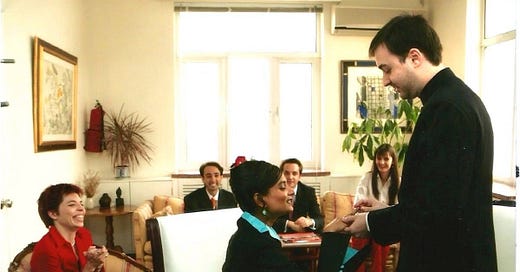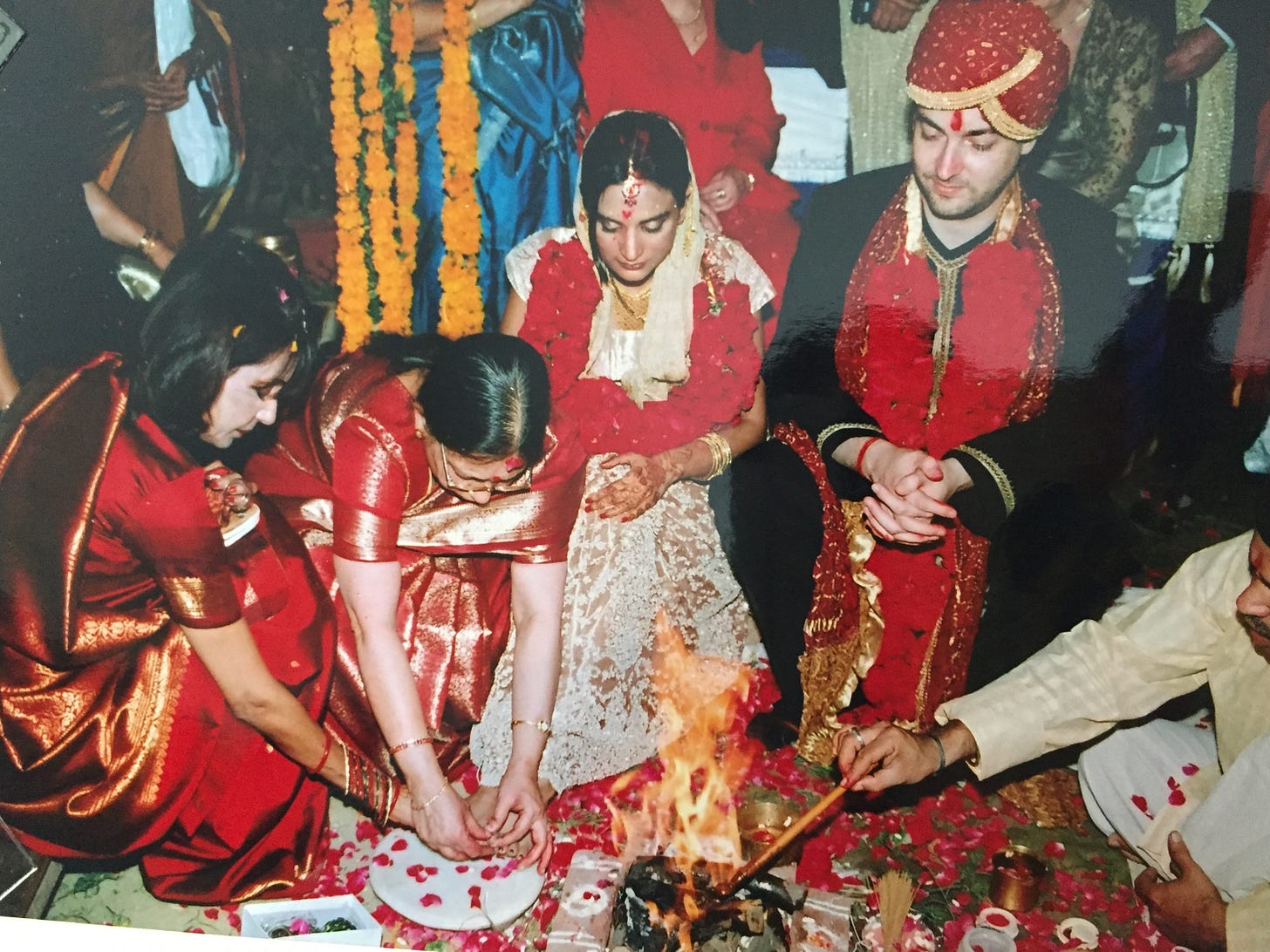Hello Global Jigsaw Friends,
My Spanish husband, Julio, and I have been married for almost 20 years. But in all this time we haven’t managed to procure any legal proof of our nuptials from India, the country of my birth and nationality. The reason? Despite its constitutional secularism, and vaunted cultural diversity, its actually very difficult for people from different religious or caste backgrounds to tie the knot there. The individual agency of the consenting adult can often seem to count for little.
When I’d first approached the Indian embassy in China, where I was resident at the time, about applying for a marriage certificate, the consular officer had needed a minute to recover from the shock of a young Indian woman desirous of marrying a “foreigner.” Once he’d regained his composure, he basically told me not to bother. It would necessitate multiple trips to India in person which we could ill afford, and “after all Madam,” he’d said, “Why do you need Indian certificate, when you have Spanish one?”
The reason, of course, was that I was an Indian citizen and wanted my government to grant my marriage legal recognition. But in India, traditionally a married woman was no longer the problem of her family, read India in this case, but of her in-laws, or Spain. Hence the consular officer’s unhelpful reaction.
Our “official” marriage at the Spanish embassy in Beijing, 2005
Undeterred, I tried for several months to get an Indian marriage certificate. It was to no avail, but I did end up learning about the country’s Special Marriages Act (SMA), which is mostly special in how effectively it subverts its own goal – that of facilitating inter-caste and inter-religious marriages.
Some background. The vast majority of Indians marry in religious ceremonies subject to the personal laws of the religion in question: Hinduism, Islam, Christianity, Sikhism etc. A 2018, Lok Foundation-Oxford University survey, revealed that 93% of respondents still had arranged marriages, where spouses are chosen by parents on the grounds of religious, caste and other community-based criteria.
The minority of Indians who fall in love outside of socially prescribed boundaries have to apply for a marriage certificate under the SMA. If only it were that easy. A major legal difference for couples marrying under the SMA and those who opt for a religious ceremony is that the former must serve a notice of their intention to get hitched to a bureaucrat called a “Marriage Officer,” 30 days before the intended date of the marriage.
This notice is then posted on a public wall, ostensibly to allow anyone with a valid reason to object to the wedding, time to intervene. Crucially, no such condition exists for couples who marry under a religious framework. In effect, the SMA gives the disapproving parents of couples who are in love but from different communities the time to track down their errant offspring and prevent them from executing their free will.
Our Indian wedding in Delhi. 2005. This was just a ceremony- without any legal document.
It's common knowledge that couples must pay bribes to clerks who paste up their notices, to make their handwriting illegible, or to “forget” to send news of their intention to marry to their residence addresses, commonly their parent’s homes.
In recent years, vigilante groups focused on the bogeyman of “love jihad” or the conspiracy theory that Muslim men are attempting to convert Hindu girls to Islam under the pretext of love, have used these notices of intent to bully, and intimidate, inter-faith couples.
The Supreme Court of India heard a petition in September that argued the 30-day notice period under the SMA was unconstitutional on the grounds that it violated the constitutionally guaranteed right to privacy of the individuals concerned. The petition was rejected on the basis that the petitioner, a 35- year-old woman, Athira Sujatha, was not an “aggrieved party” since she was already married under the SMA.
In fact, Athira, a Hindu who married a Muslim man in 2019, faced months of bullying and intimidation after her address (taken from the intention to get married notice) was circulated by right-wing trolls on Facebook and WhatsApp. The messages called on “the public” to visit her parents and make them “aware” about her marriage. Athira’s parents were in fact supportive, but often, inter-faith and inter-caste couples can find themselves in dangerous, even life-threatening situations at the hands of their own parents.
According to the 2020 National Crimes Record Bureau (NCRB), 25 cases of “honour killing” were reported across India in 2019. But Evidence, an NGO, revealed in November 2019 that as many as 195 known cases of honour killings were reported from the southern state of Tamil Nadu in the past five years. Clearly, several cases go unreported.
Love is love, might be the global motto du jour, but India has clearly not yet got the memo. Far from a matter of attraction and consent between individual adults, marriage remains a community-sanctioned union between two families, that lovers transgress, often at bodily peril.
As for me, I’ve remained in love and married for twenty-odd years now, despite having no piece of paper from the Indian government to prove it. Last year, believing it to never be too late, I made a final attempt to get a marriage license by writing to the Indian ambassador in Spain for help. He replied saying his consular officer had sent him the following query in response, “What does she need it for?”
****
As usual I will end with an appeal for you to upgrade your subscriptions to paid ones, so the Global Jigsaw can keep going and perhaps even expanding its story cache which are underpined with the values of pluralism and global connections. You could also consider buying gift subscriptions for friends - Christmas is round the corner!
In any case, do share and spread the love. And leave a comment too :-)
Much love,
Hasta pronto,
Pallavi






This is ridiculous, Pallavi! I admire you for your determination to both get the marriage certificate as well as keep your Indian passport.
We're a country of dimwit, in fact braindead, bigots!!!